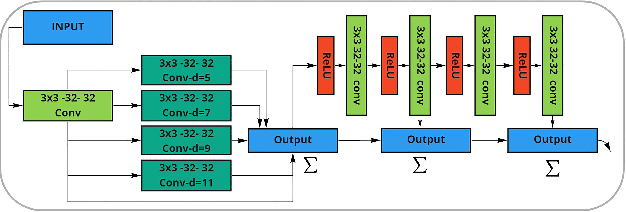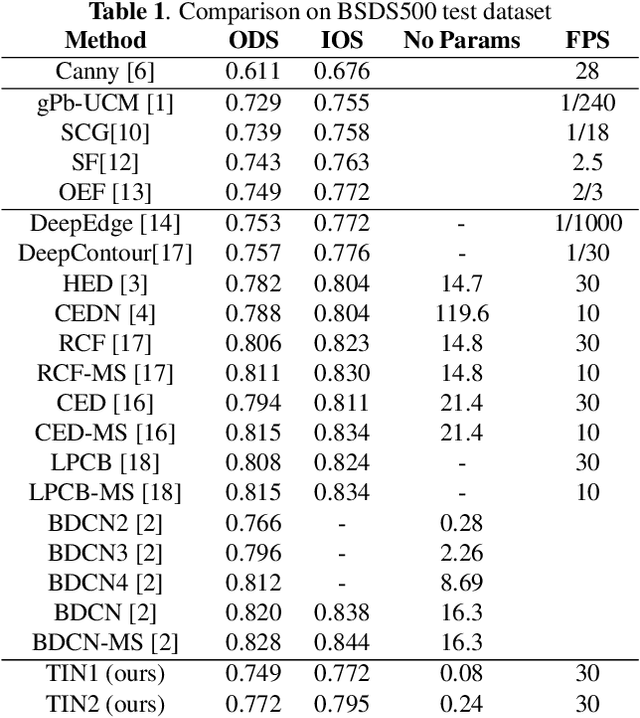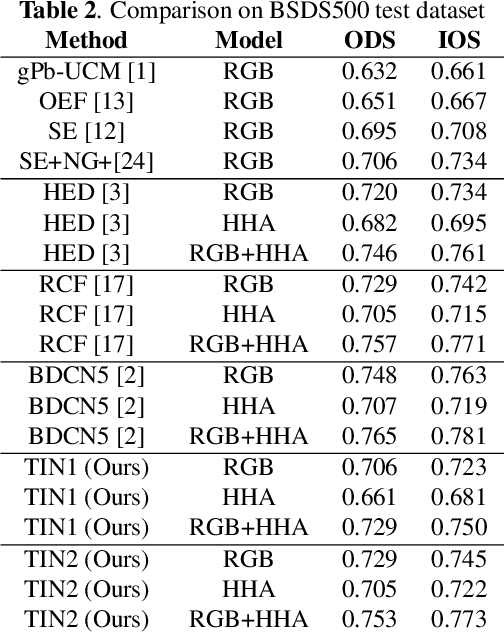Jan Kristanto Wibisono
FINED: Fast Inference Network for Edge Detection
Dec 15, 2020



Abstract:In this paper, we address the design of lightweight deep learning-based edge detection. The deep learning technology offers a significant improvement on the edge detection accuracy. However, typical neural network designs have very high model complexity, which prevents it from practical usage. In contrast, we propose a Fast Inference Network for Edge Detection (FINED), which is a lightweight neural net dedicated to edge detection. By carefully choosing proper components for edge detection purpose, we can achieve the state-of-the-art accuracy in edge detection while significantly reducing its complexity. Another key contribution in increasing the inferencing speed is introducing the training helper concept. The extra subnetworks (training helper) are employed in training but not used in inferencing. It can further reduce the model complexity and yet maintain the same level of accuracy. Our experiments show that our systems outperform all the current edge detectors at about the same model (parameter) size.
Traditional Method Inspired Deep Neural Network for Edge Detection
May 28, 2020



Abstract:Recently, Deep-Neural-Network (DNN) based edge prediction is progressing fast. Although the DNN based schemes outperform the traditional edge detectors, they have much higher computational complexity. It could be that the DNN based edge detectors often adopt the neural net structures designed for high-level computer vision tasks, such as image segmentation and object recognition. Edge detection is a rather local and simple job, the over-complicated architecture and massive parameters may be unnecessary. Therefore, we propose a traditional method inspired framework to produce good edges with minimal complexity. We simplify the network architecture to include Feature Extractor, Enrichment, and Summarizer, which roughly correspond to gradient, low pass filter, and pixel connection in the traditional edge detection schemes. The proposed structure can effectively reduce the complexity and retain the edge prediction quality. Our TIN2 (Traditional Inspired Network) model has an accuracy higher than the recent BDCN2 (Bi-Directional Cascade Network) but with a smaller model.
 Add to Chrome
Add to Chrome Add to Firefox
Add to Firefox Add to Edge
Add to Edge